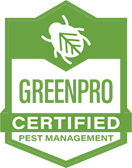
The Most Effective Way To Keep Spiders Out Of Your Roseville Home
There's just something about spiders that raises the hairs on your arms and neck. For some, it's their physical features (eight legs and multiple eyes); for others, it's their stealth and how they seem to appear seemingly out of nowhere. If spiders give you the creeps, you're not alone. These hair-raising pests in your Roseville home will cause stress and several other problems.
If you're finding spiders in your home, you're likely first wondering how to get rid of spiders in the house because as soon as you see one, you want it gone immediately. However, seeing a spider also raises the question of why they have invaded in the first place.
Finding spiders in your home could be due to a few different reasons, but it's also important to note that it depends on the types of spiders you're finding. Active ground spiders like the wolf spider and the sac spider naturally prefer to be outdoors because there is more of an abundance of prey for them. Other spider species thrive within your home and can be hard to eradicate.
While spiders play an essential role in our ecosystem, they have no place in your Roseville home. If you start to notice spiders in your home or if they're seemingly coming out of nowhere, you must call a Roseville pest control company. The pros at Neighborly Pest Management have served Roseville residents since 1978. We'll put your spider concerns to rest with our effective removal services.
Types Of Spiders You May Find In Your Home
You can find many different types of spiders in your Roseville home; around 66 species are found in California. Here are a few of the most common types of spiders that you may encounter in or around your home:
- Black widow spider: The dreaded black widow is a notorious spider that doesn't require much introduction. The bite of a female black widow spider is said to have venom that is 15 times more potent than that of a rattlesnake. These spiders are jet black and typically have a red hourglass design on their abdomens. The black widow is a solitary creature except during mating season. After mating, the female black widow will often consume their male counterparts, hence the name. They can enter your home in various ways, including through open doors and windows, tears in screens, firewood, or cracks in the foundation. Their webs are considerably more durable than those of other spiders.
- Yellow sac spider: Yellow sac spiders are typically no larger than a quarter of an inch in length and range in color from a beige to a dull yellow. They hunt their prey at night rather than setting up traps during the day. A bite from a yellow sac spider usually produces only mild symptoms but can be more intense in some cases. However, like most other spiders, they will only bite if threatened or provoked.
- Wolf spider: Wolf spiders are often large and hairy. Their appearance is intimidating, but they rarely bite and are not considered to be dangerous to humans. Rather than constructing webs to catch their prey, wolf spiders chase down insects with remarkable speed and agility.
- Cellar spider: Cellar spiders come in shades ranging from gray to tan and have small bodies with long, thin legs. If provoked, they will attempt to bite, but fortunately for us, their mouthparts are not big enough to bite humans. The name "cellar spider" comes from the environments in which they are most likely to be found, which are damp, dark, and secluded (like cellars). They tend to live close to one another, which results in forming a network of webs within their community.
Encountering any of these spiders can send chills up the spine of even the bravest Roseville residents. Call Neighborly Pest Management to schedule your inspection if you see spiders in your home.


Ensuring your home and business are pest-free, explore our different service areas to see if we're local to you! Give us a call to get started!
A Spider Infestation Often Indicates A Bigger Problem
One of the biggest tells that you have a spider infestation is the presence of spider webs. Sometimes, you can even tell what type of spider you're dealing with just based on the shape and design of the web; is it funnel or orb-shaped? Nonetheless, finding spider webs around your home can be a bit of a double-edged sword.
On the one hand, there's the obvious: you have a spider problem in your Roseville home. On the other hand, having spiders in your home indicates an even bigger pest problem.
Pests like flies, mites, gnats, ants, moths, and other small insects serve as food sources for spiders. So, technically, spiders aren't just in your home for no reason; they're at least feeding on the other potentially harmful pests in your home. However, the presence of spiders lets you know you have further problems in your home, which means you need total pest control.
Contact Neighborly Pest Management to restore peace to your home so you can get back to a pest-free living space.
-
Same-Day & Emergency Services AvailableWhen possible, we can provide prompt assistance to help with your pest solution needs.
-
Local, Family Owned & OperatedRooted in our local communities, we know the best solutions for the pests in our unique areas.
-
We Offer Organic Treatment OptionsEmbrace a eco-friendly approach with our range of sustainable solutions for your needs.
-
45+ Years of Industry ExperienceTrust in our seasoned knowledge and proven track record spanning over four decades.
Five No-Sweat Spider Prevention Tips For Around Your Home
Spiders in Roseville homes are widespread but are generally not harmful. In fact, they frequently assist in eliminating other pests. Despite this, you should avoid encountering them. Neighborly Pest Management can ensure you don't have to with our assistance. Here are five simple steps to prevent spiders from entering your house.
- Remove clutter: Spiders prefer cluttered, chaotic settings. They enjoy the protection, cover, and environment it offers for building webs. Spiders also find clutter in yards and basements to be the ideal hunting ground. They construct their webs around various clutter to catch other pests moving from different parts of a room to the next. Eliminate clutter from your home's interior and exterior. Pick up any debris outside, such as sticks and fallen branches. Cut your lawn short, so you can see when things accumulate. Organize your attic and basement as thoroughly as possible inside. Keep your boxes elevated and stacked.
- Eliminate webs: Spiders prefer their webs to last as long as possible because creating them is labor-intensive. Hopefully, spiders will learn their lesson if you keep removing their webs as soon as they are made. Search for spider webs near windows, doors, utility lines, awnings, and dark corners. As you discover them, vacuum them up using a hand vacuum. When you're done, dispose of the bag in your outdoor trash can. Keep returning to areas where you discovered spider webs and removing them as they appear.
- Seal openings around windows and doors: The most common entry points for all pests, not just spiders, are gaps around doors and windows. In fact, spiders frequently create webs around windows and doors because other pests enter through those openings. Check each of your doors and windows for drafts. Use caulk to seal rifts or cracks. Replace damaged weatherstripping and verify that the windows and doors fit snugly within their frames. Consider getting new ones if your frames are broken, worn, or damaged. Caulking window frames can significantly improve the prevention of pest infestations.
- Keep other pests at bay: Spiders enter homes to construct webs and hunt prey in warm, conducive environments. By removing conducive conditions, your home will be less appealing to spiders. You can make it more challenging for spiders to find food inside your house than outside with effective pest control services and slight home improvements. Patch up the doors and windows, and check for cracks near baseboards and utility lines. Install weatherproofing and door sweeps. Especially in your basement and attic, eliminate all sources of food and water. Declutter your home regularly.
- Prune back bushes and shrubs: Spiders frequently scale nearby branches to land on rooftops or the walls of houses. They might also find their way into the vegetation growing around houses to hide and create webs. Spiders will feel more at ease remaining where they are if there is more cover than usual. Try to keep a three-inch space clear all around your house. Any shrubs or branches that encroach on your clearing should be cut back. Trim away any branches that hang over or brush up against your home with extra care. Maintaining your lawn will keep other pests out of your house as well.
Remember, the above tips are prevention measures and are most effective once a spider infestation is removed. To determine if you have a spider infestation in your home, call Neighborly Pest Management.
The Most Effective Spider Control With Professional Pest Control
The most effective way to control spiders is to eliminate their food sources. Reducing the number of insects in your home encourages spiders to leave, and Neighborly Pest Management has the best methods for controlling spider food sources.
We are the right choice for you regarding spider control or home pest control in general. Keeping spiders away may be difficult, but it is not impossible with professional help. If you need assistance with a spider problem, don't hesitate to contact us. Call Neighborly Pest Management today to learn about our spider removal services.

Hear From Our Happy Customers
At Neighborly Pest Management, your satisfaction is our priority! See for yourself what our customers have to say about working with us.
-
“My technician Doug Stone is amazing!! To say he goes above and beyond to maintain my property is an understatement! He took care of the issue and took the initiative to repair the garage door where my unwanted friends were getting in. Problem solved!!”- Jill M.
-
“We can't share enough positive feedback about Doug and Neighborly Pest. Doug has always gone above and beyond to make sure our house stays bug-free!! He's considerate and always follows up to see how things are going after his visit.”- Sabrina C.
-
“Adam was fantastic! Super friendly and professional. I felt at ease and knew I could ask any question, no matter how dumb it sounded, and he was able to answer and provide more information based on my concerns.”- Erin D.
-
“Nate is an excellent technician. He is a big reason we’re so happy with the service! Overall a great company and fair pricing.”- M.D.
-
“I've never had a bug problem since I switched to Neighborly. Danny is an awesome technician! He has a great personality and explains things thoroughly and gives me clear and detailed answers to any questions I might have.”- Joe B.
-
“We’ve used Neighborly for a couple of years and have had outstanding service consistently throughout. Doug is mindful of our pets and kid's safety as well, making sure that our home is a safe environment for everyone except the pests!”- Greg





